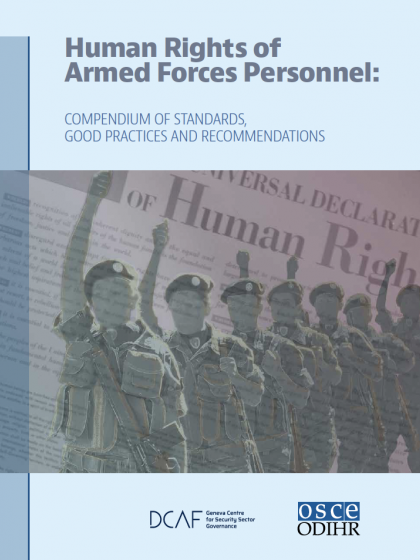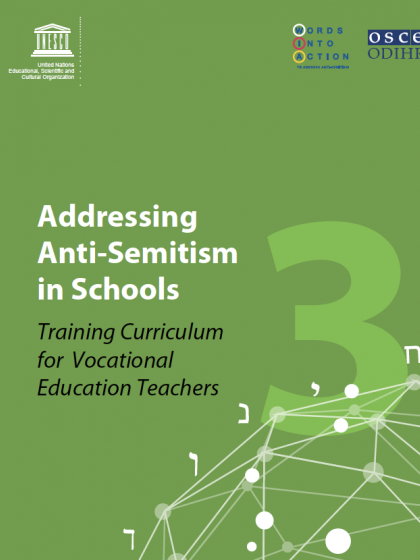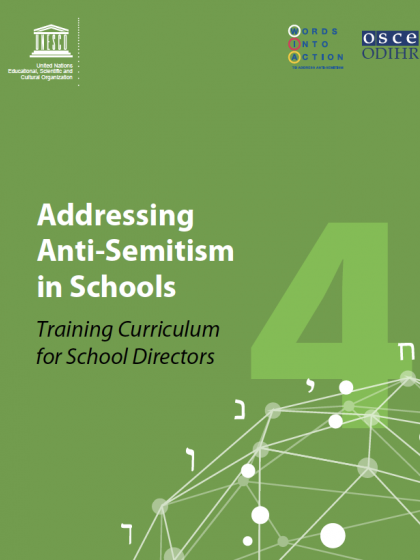Publications
Human Rights of Armed Forces Personnel: Compendium of standards, good practices and recommendations
Publishing date: 4 March 2021
Content type: Study / report
Where we are: OSCE Office for Democratic Institutions and Human Rights
Publisher: Organization for Security and Co-operation in Europe
This Compendium presents an overview of legislation, policies, and mechanisms for ensuring the protection and enforcement of the human rights and fundamental freedoms of armed forces personnel. It includes many examples and good practices from across the OSCE region that have proven successful. It also contains recommendations which can help participating States ensure that their policies and practices are in full compliance with international human rights standards and OSCE human dimension commitments.
Integrating the Issue of Sexual and Gender-Based Violence in Detention Monitoring: A Guidance Note for Oversight Mechanisms
Publishing date: 28 January 2021
Content type: Guide / manual / handbook
Where we are: Troika, OSCE Office for Democratic Institutions and Human Rights
What we do: Human rights
Publisher: Organization for Security and Co-operation in Europe
Sexual and gender-based violence (SGBV) is a persistent problem in places of deprivation of liberty. This guidance note is designed to help all detention monitoring mechanisms integrate the issue of SGBV in their ongoing work. The document summarizes the importance of monitoring for SGBV and provides practical suggestions on how to incorporate these considerations into monitoring work without further endangering those at risk.
Handbook on Monitoring Freedom of Peaceful Assembly: Second Edition
Publishing date: 11 December 2020
Content type: Guide / manual / handbook
Where we are: OSCE Office for Democratic Institutions and Human Rights
What we do: Democratization, Human rights
Publisher: Organization for Security and Co-operation in Europe
ODIHR handbook on monitoring freedom of peaceful assembly This second edition of the handbook provides a conceptual and methodological framework to guide the independent monitoring of assemblies, based on ODIHR's methodology. It also incorporates key information gathered in the course of
Human Rights and Gender Equality during Public Emergencies
Publishing date: 8 December 2020
Content type: Guide / manual / handbook
Where we are: OSCE Office for Democratic Institutions and Human Rights
What we do: Human rights, Gender equality
Publisher: Organization for Security and Co-operation in Europe
How Women Are Impacted By Restrictions To Fundamental Freedoms And Human Rights: Observations From The Covid-19 Pandemic
Making sure people with disabilities take part in politics and public life: Easy to understand information
Publishing date: 2 December 2020
Content type: Guide / manual / handbook
Where we are: OSCE Office for Democratic Institutions and Human Rights
What we do: Human rights, Tolerance and non-discrimination
Publisher: Organization for Security and Co-operation in Europe
This document is about the best ways to make sure people with disabilities can take part in politics and public life.
Addressing Anti-Semitism in Schools: Training Curricula
Publishing date: 17 November 2020
Content type: Brochure
Where we are: OSCE Office for Democratic Institutions and Human Rights
What we do: Human rights, Education, Youth, Tolerance and non-discrimination
Publisher: Organization for Security and Co-operation in Europe
This brochure presents the four-volume joint publication on "Addressing Anti-Semitism in Schools: Training Curricula”, developed by the OSCE Office for Democratic Institutions and Human Rights (ODIHR) and UNESCO. The publication, intended for trainers, aims to assist teachers and school directors in preventing and responding to anti-Semitism. It provides practical guidance on addressing anti-Semitism and countering prejudice in and through education, while promoting human rights, global citizenship education and gender equality. The four volumes are designed for trainers of (1) primary school teachers, (2) secondary school teachers, (3) vocational school teachers and (4) school directors.
Addressing Anti-Semitism in Schools: Training Curriculum for Primary Education Teachers
Publishing date: 17 November 2020
Content type: Guide / manual / handbook
Where we are: OSCE Office for Democratic Institutions and Human Rights
What we do: Human rights, Education, Youth, Tolerance and non-discrimination
Publisher: Organization for Security and Co-operation in Europe
This joint publication by the OSCE Office for Democratic Institutions and Human Rights (ODIHR) and UNESCO aims to assist primary school teachers in preventing and responding to anti-Semitism. It is part of a set of four training curricula designed for trainers of (1) primary school teachers, (2) secondary school teachers, (3) vocational school teachers and (4) school directors.
Addressing Anti-Semitism in Schools: Training Curriculum for Secondary Education Teachers
Publishing date: 17 November 2020
Content type: Guide / manual / handbook
Where we are: OSCE Office for Democratic Institutions and Human Rights
What we do: Human rights, Education, Youth, Tolerance and non-discrimination
Publisher: Organization for Security and Co-operation in Europe
This joint publication by the OSCE Office for Democratic Institutions and Human Rights (ODIHR) and UNESCO aims to assist secondary school teachers in preventing and responding to anti-Semitism. It is part of a set of four training curricula designed for trainers of (1) primary school teachers, (2) secondary school teachers, (3) vocational school teachers and (4) school directors.
Addressing Anti-Semitism in Schools: Training Curriculum for Vocational Education Teachers
Publishing date: 17 November 2020
Content type: Guide / manual / handbook
Where we are: OSCE Office for Democratic Institutions and Human Rights
What we do: Human rights, Education, Youth, Tolerance and non-discrimination
Publisher: Organization for Security and Co-operation in Europe
This joint publication by the OSCE Office for Democratic Institutions and Human Rights (ODIHR) and UNESCO aims to assist vocational school teachers in preventing and responding to anti-Semitism. It is part of a set of four training curricula designed for trainers of (1) primary school teachers, (2) secondary school teachers, (3) vocational school teachers and (4) school directors.
Addressing Anti-Semitism in Schools: Training Curriculum for School Directors
Publishing date: 17 November 2020
Content type: Guide / manual / handbook
Where we are: OSCE Office for Democratic Institutions and Human Rights
What we do: Human rights, Education, Youth, Tolerance and non-discrimination
Publisher: Organization for Security and Co-operation in Europe
This joint publication by the OSCE Office for Democratic Institutions and Human Rights (ODIHR) and UNESCO aims to assist school directors in preventing and responding to anti-Semitism. It is part of a set of four training curricula designed for trainers of (1) primary school teachers, (2) secondary school teachers, (3) vocational school teachers and (4) school directors.










